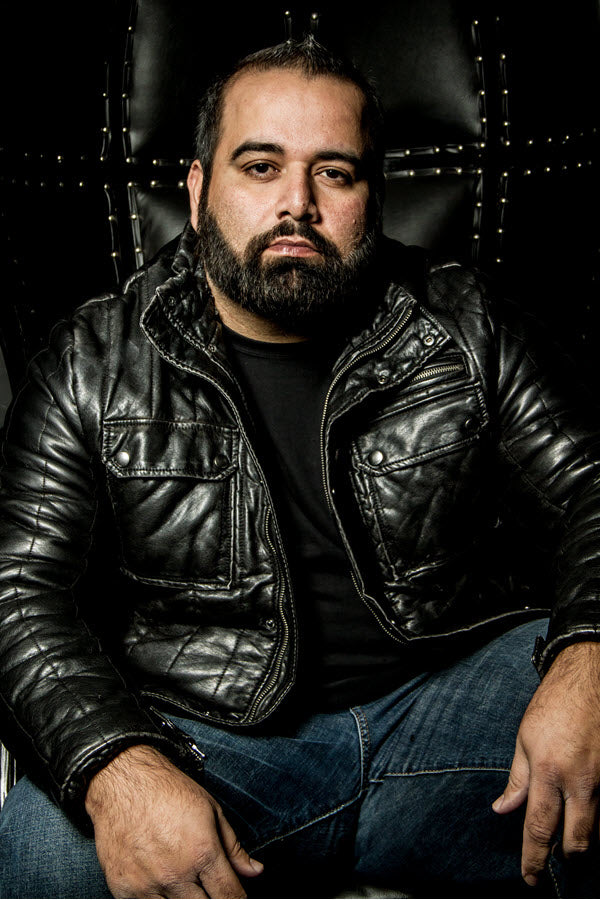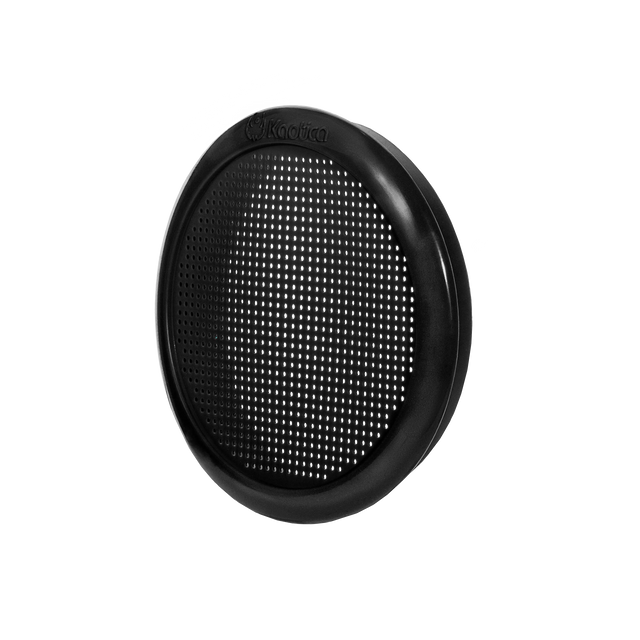
Ovais Malik | VO
Ovais Malik is a well established professional voice actor whose work has graced almost every aspect of the industry, from commercials and narration to major video game software, including one that featured Breaking Bad’s Bryan Cranston as its co-star. He’s worked on documentary films and has done ADR work for major motion pictures. But the thing that makes him a global triple threat in a tough to break into and highly competitive industry is his ability to work in three different languages: English, Urdu and Hindi. In this interview, Ovais offers some in depth wisdom into the world of voice acting and some sage advice for stepping up your game and establishing yourself.
What inspired you to first get involved in voice acting?
"It started when I was in third grade. My friends would have me do impressions of my teachers just for giggles."
I watched a bunch of cartoon shows and played games and I heard all the voices for these characters. The whole idea of being able to create characters and the challenge of doing that without having props and things in front of you like if you were on camera was really interesting to me. And now I'm able to actually make a living doing it, which is great.
So did you have any early influences? Actual voices or talent that you wanted to be like?
Well, you have different niches for voiceover work. You have commercial work, animation, video games and trailer work. As far as trailer voices went, the big voice of God was a guy named Don Lafontaine. He was the guy who was famous for all those trailers that began with “In a world…” that you heard a million times. Watching him and seeing how he performed and just how he carried himself as a voiceover actor was very inspiring to me. But it was also kind of scary because when he got started there were like 10 guys in all of Hollywood taking all the work you know. It was a very different time, compared to today.
Yes, voice over work is hardly an easy field to break into these days. What was your process to get started?
I won’t lie, it's a very long and difficult process. I'm not trying to say, hey if somebody wants to get started don't waste your time. But for me it was a lot of talking to actors, talking to people in the business. I eventually spoke with somebody who was really a pivotal part of voiceover directing and acting in the 80s. His name was Walter “Wally” Burr. He passed away actually about a year ago. He was responsible for helping create the voice of Optimus Prime. He had worked on stuff like G.I. Joe and all the stuff back in the 80s. He was very gracious and allowed me to talk to him. We became friends and I asked him what were the best ways to get into voiceover.
"My take from those conversations is that there's no one way to do it."
But the key to really starting and maintaining your career is handling it as a business because that's what it is. And marketing is pivotal for getting work, maintaining work and getting new clientele.
But when you're just starting out you have to understand that you first have to know how to act. People think that just because you're not in front of a camera you're just talking. If it were that easy all of us would be voiceover artists. There's a lot of training that goes into the craft and you have to know how to act.
And then once you have your chops up you never stop learning. You have to constantly practice, take classes and whatnot. When I first started, my focus wasn't on getting a demo made, it was on making sure my chops were up and I understood what the market wanted because in voiceover you have to really be able to follow what the trends are. Then you have to have a really good demo. If you don't have a professionally produced demo it doesn't matter if you’ve got a voice like Don Lafontaine, you're not going to get noticed because people aren't going to take you seriously.
"And then you have to get out there and just really start grinding."
That means calling video production companies and networking. For people that are starting out nowadays I would recommend them trying to do audiobooks because that's a good step into the voiceover field. Then you can build yourself up and find out what your niches are. You might end up landing in commercials or you might end up being really good at corporate work or videogames or animation.
How do you go about getting a professional demo made and then establishing any credibility when you’re no one and just starting out?
Basically, you can look up voiceover demo producers. The main thing, when looking to find someone to record your demo is look at what they've done most recently. Like if the last thing they did was in 1984 then they might not be up to date with what the market’s looking for right now. I would recommend going into a studio where they do recording sessions for voiceovers. They have producers in place.
And there's lots of companies now online like Fiverr where you can get work. There's also a misconception that everything cost $5 on Fiverr. But that’s not how it works. Everything is basically a la carte. So if they want to add music, they charge extra for that. If they want more than one revision that's an extra charge. That's a great way for somebody that's starting to get their foot in the door. That's one. Another avenue they could try is Craigslist. Believe it or not I’ve found jobs there. I was able to work with Hollywood's biggest visual effects director, William Mesa and I got that job through Craigslist. I found that ad buried in the abyss. I mean you had to really dig to find this stuff. But yeah that ended up being a fantastic job and another big name to put under my belt.
"But really it comes down to marketing and it comes down to constantly getting out there."
Get the yellow pages. There's a great Web site called VoiceOver Resource Guide, which offers a comprehensive list of production companies, production houses, record labels, etc and all of the people that you would need to contact are basically on there.
And because of all the advancements in technology there's more work than ever. You have online YouTube videos, distance learning. There’s so much work out there. Voice acting has become the biggest it's ever been and it's only continuing.
Certainly, there are the lean times when you’re trying to establish yourself. What’s your secret for pushing through the struggle?
"I think the key is you just have to be the last man standing and you got to keep pushing when you feel like things are really rough."
Because there are times where you can audition 25, 30 or 40 times and not hear back and that could be discouraging, especially if you're just starting out. I would be like ‘Man, what's going on?’ you know. It can get really crazy sometimes. You just have to remember that it's not necessarily about you. You just might not be what they're looking for. Sometimes they don't even know who they're looking for. So they'll send you something asking for certain characteristics. Then you do it and they're like ‘Oh, now that we heard it we actually are going into this direction.’ You can't take it personally.
How does one market themselves in the voiceover community when there are like 10,000 voice actors out there?
One of the best and most effective ways to gain potential new clients is cold calling, believe it or not. People hate to cold call because why? Because they're not comfortable talking to people who are not their friends. There are various ways to marketing yourself. It used to be five, ten years ago you sent out CDs of your demo. But right now if you send a CD out to someone they're probably not going to listen to it because they have a thousand other ones right there.
So cold calling is one of the most effective ways to gain clients because when you do it you're not trying to make a sale. All you do is reach out to them to try and get to know them a little bit. It's like, “Mind if I send you over one of my voiceover demo reels? Usually, they will say “sure, send it over.” Then you say, “Hey, you mind if I keep your e-mail so I can keep in touch with you from time to time? Sure, no problem.” So I add those people that are okay with it to my mailing list and continue reaching out to them between six and twelve times a year, no more than that.
Because you don't want to drive him crazy but you want to just stay relevant in their mind because no matter how good you are or how much work you get, if you don't reach out to these people they're going to forget.
I've gotten so much work just from my marketing e-mails to my list. People will eventually be like, “hey, we have this project coming up. Do you want to do it because all those follow ups reminded them you know. So that's like the number one strategy.
How has the Eyeball impacted your workflow?
It's been fantastic. I mean it's been a game changer for me. I used to go into a hotel room and bury myself underneath pillows and record demos for auditions. I mean it was crazy. I don't need to do that anymore.
"I just take my Eyeball with me. Now, whatever space I’m in, whether a hotel or wherever, I get really good quality audio without having to beat myself up over it. It's really hassle free. It's consistent and it just plain works."
A couple weeks ago I recorded an audition for a project which was a film. I did that from the hotel room and I booked the job. Had I not had the access to a tool like the the Kaotica Eyeball I wouldn't have known about the job because I probably wouldn't have been auditioning if I knew I couldn’t get a professional sound from the place I was at the time. I have like three of them now. I actually used one recently to record in a studio for Bethesda with Bryan Cranston, my co-star and I actually took the Eyeball into the studio because I like it so much. So I’ve just fallen in love with the product.
What advice would you give to an aspiring voice actor today if they were starting from scratch to get to where you are today?
I would tell them to focus on their training. Focus on the acting aspect of voice acting and don't rush into going out and buying equipment or treating your recording space. You don't need to worry about all of that because voice over isn't going anywhere and you would be better off taking the time to get training. I highly recommend taking improv classes. Local colleges offer tons of them. Take voice and diction classes. I even went back, recently and I took an advanced voice and diction class and I felt like I learned so much.
"The key is to constantly try and learn and constantly improve. It’s less about the voice and more about the delivery and about evoking the emotion."
Worry about getting your chops up vocally and once you get that, once you've had some time to read and do monologues in classes like voice inflection, you’ll be better prepared for when you do go out and get your recording equipment to start getting those jobs. And instead of auditioning a hundred times you'll probably have to audition half as much just because your voice will be more dialed in. You'll know how to handle the cadence and the intonation and all that stuff.
Then when you’re ready, remember that you don't want to purchase equipment for the purpose of producing your own demo. You buy the equipment to record demos for your auditions. You always want to go out and get a demo produced. That’s because you don't have the ear to direct yourself. They're not the cheapest thing to do but you don't have to go out and spend $1500 either on the demo. You can get a solid demo done for a couple of hundred dollars these days.
OK so you’ve made your demo. Now what?
The voiceover business is changing and a lot of the power from the big agencies has shifted away from them. They're no longer the only way to book a big job. They still have a lot of the big work but they're using pay to play sites like Voice123.com or voices.com. And when I say pay to play it means you have to buy a membership for the year.
So if you can afford the membership fee I would get on one or more of those. A lot of these production companies are going to those sites because they have a database of thousands of voice demos. Now obviously not all of those thousands are at the same level. But it gives them access to a huge group of people that they can easily click on and listen to. And it's like the easiest way to do it.
But if you get your demo made and let's say you don't have the funds to pay $300-$400 for voices.com, one way to get your stuff out there is you can look on Craigslist. You type in “voiceovers” or “voiceover talent” in the TV and Film or Gigs section and you see if there are any jobs out there. And a lot of times people need audiobook work or they have a little commercial, whatever it might be. So you would email them and you would include your demo and just be very short about it. Don't give your life story, just be kind of like, ‘Hi, my name is Ovais Malik, I saw your ad on Craigslist and I wanted to submit my reel for consideration.’
You have to make it so simple for them that there's not a lot of work involved. Not a lot of pushing buttons.
What I do is when I submit myself for work I'll kind of introduce myself really quickly. I have a link to my website, which has all of my voice reels and you just go right there click on whichever reel you want. Done deal.
None of this stuff is ever a guarantee but it increases your chances to getting work and ultimately you know that the key is treating it as a business. You have to remember that these people need you just as much as you need them.



















